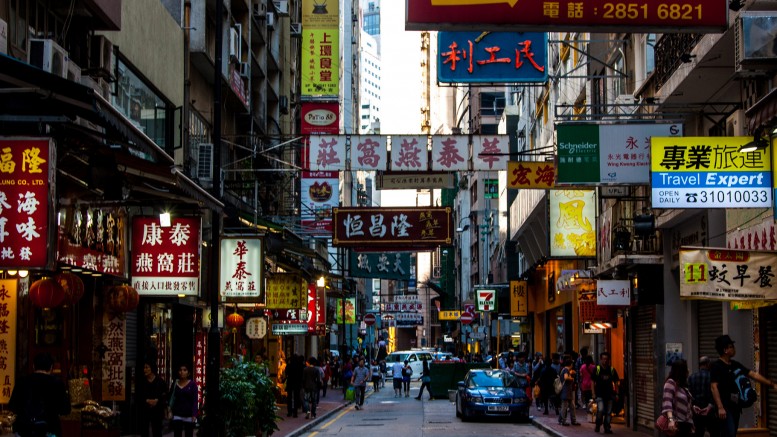Vincent Chan via Caixin | The Hong Kong dollar has been under pressure recently. On January 20, the value of the currency plunged to an eight-year low of 7.8228 to the U.S. dollar. Meanwhile, the stock market’s benchmark Hang Seng Index fell 3.8 percent from the previous day to 18,886.3, the lowest level in 42 months.
The double whammy is reminiscent of the attack by global short sellers in 1997-98 on the Hong Kong dollar, which is pegged to America’s currency. Hong Kong did not drop the peg back then, and it will not do so this time around.
The authorities have enough official foreign exchange in reserve to stabilize the exchange rate. As of the end of December, Hong Kong had US$ 358.8 billion in official forex reserve. That was more than seven times the amount of currency in circulation. China’s central bank has also provided support for stabilizing Hong Kong’s forex market.
There is little possibility that Hong Kong will drop the peg to the U.S. dollar and turn to the yuan instead, primarily because the yuan is not freely convertible. Also, considering the government’s record defending the exchange rate system even at the expense of losses, deflation and plummeting housing prices, it is very unlikely it will give up easily this time.
A lot has happened over the course of nearly two decades, and six things are drastically different from the last time Hong Kong fought out short sellers – some in its favor and some not. However, all need to be taken into consideration.
First, the size of forex derivative transactions outside the stock exchange has expanded greatly, making supervision and regulation more difficult. In early 1997, short positions on forward contracts based on the Hong Kong-U.S. dollar exchange rate totaled only HK$ 6.3 trillion. As of October, the figure had reached HK$ 22.3 trillion.
Next, back then short sellers maneuvered with only stocks and currency forwards. Now they have more complex, structured and flexible financial derivatives to choose from.
Third, thanks to a slew of measures following the 1997-98 attack, banks in Hong Kong are less exposed to the risk of liquidity shocks during a crisis. That means less volatility in interest rates and more control for the government over the forex market.
Also, China has grown to be the world’s the second-biggest economy and its central bank has become more influential. Recent moves in the offshore yuan market in Hong Kong underscored how strong its intervention can be. The central government’s commitment to protect Hong Kong’s exchange rate system provided strong support for its survival in the 1997-98. Should it make the same commitment now, its capacity to do so is even greater.
Fifth, mainland companies make up more than half of the component stocks in the Hang Seng Index. Another quarter belongs to local enterprises and the rest to multinational corporations such as HSBC and American International Assurance, which are becoming less susceptible to fluctuations in Hong Kong’s interest rates. Overall, it means the former British colony has become ever more dependent on the mainland economy. As the yuan starts depreciating, the Hong Kong dollar is bound to move correspondingly.
Finally, the amount of mortgages in Hong Kong has fallen compared with the level in 1997. Since 2009, the city’s government has introduced at least 15 rules to control risk in the real estate sector. They include increasing the supply of land available to developers and requiring bigger down payments in home purchases. In 1998, mortgage loans accounted for 60 percent of a home’s value on average. The ratio peaked at 66 percent in June 2009 and fell to 48.7 percent in November. This is one indication that the risk of the property market has been reduced.
It is worth noting how the stock and real estate markets in Hong Kong will respond to higher interest rates if they continue to increase. Housing prices are at their highest levels ever. If interest rates shoot up significantly, they may fall by up to one-quarter in the next three years based on our estimates.





